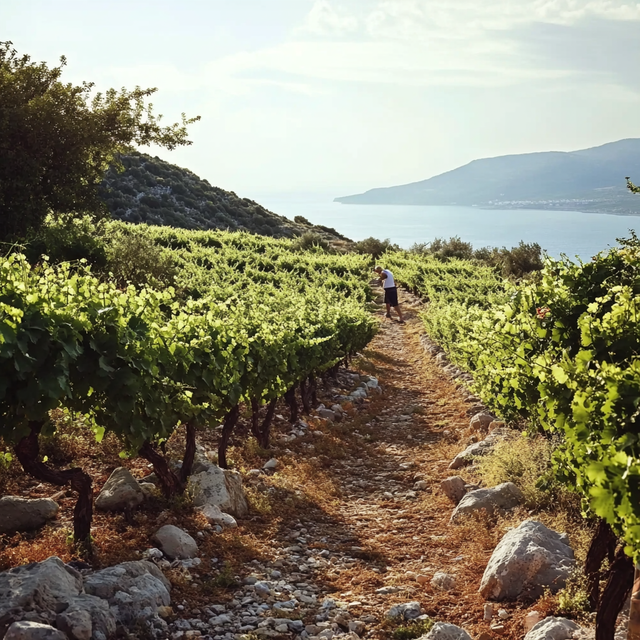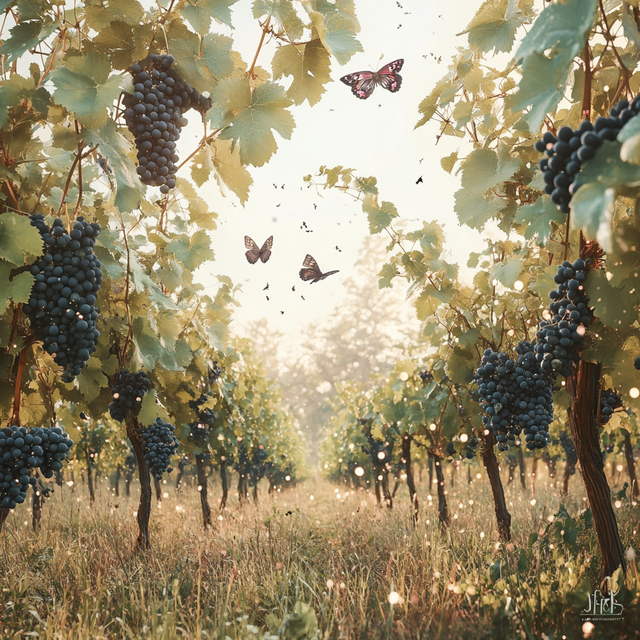Greece – Islands includes nearly twenty winegrowing islands among the country’s 87 inhabited isles, each shaped by the Aegean’s sun, wind, and sea. Santorini’s volcanic soils, Crete’s mountainous terrain, and Cephalonia’s limestone-rich slopes are among the most influential, producing mineral-driven whites like Assyrtiko and Robola, as well as fresh, structured reds from native grapes such as Liatiko and Mavrodaphne. Across the islands, poor rocky soils, elevation, and constant maritime breezes give rise to wines of brightness, salinity, and distinctive character.
Greece - Islands
Certified Organic farming is an agricultural practice where vineyards adhere to strict regulations prohibiting the use of synthetic pesticides, herbicides, fungicides, and fertilizers. Instead, certified organic growers rely on natural alternatives, including compost, cover crops, and beneficial insects, to nourish the soil and manage pests. Certification requires compliance with established organic standards, typically verified by third-party agencies such as USDA Organic in the United States or EU Organic in Europe. This method emphasizes ecological balance, biodiversity, and sustainability, aiming to produce high-quality grapes and wines while reducing environmental impact and promoting long-term vineyard health. Organic farming is not allowed to use Glyphosate.




